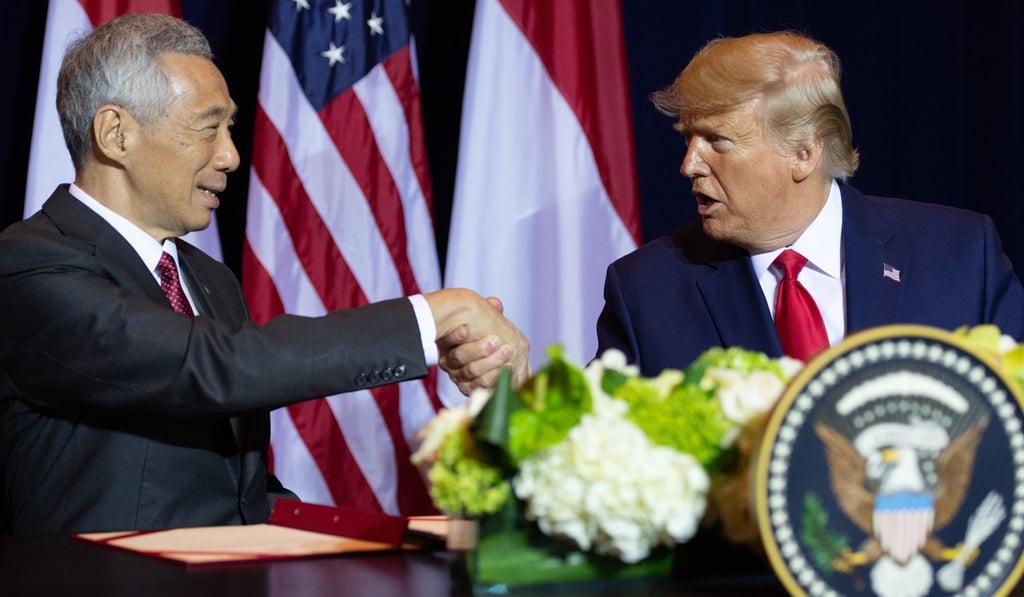Singapore renews military bases pact with US amid deepening defence ties with China
- Washington renews pact granting US forces access to Lion City’s bases until 2035, underlining the city state’s importance to America’s Asia strategy
- Late leader Lee Kuan Yew once said he had no objections to both the US and China one day having logistics bases in his country

One maritime observer said the renewal of the 1990 agreement – which was all but a formality – was likely to be viewed by China with some trepidation, as it comes amid US efforts to enhance its forward presence in the Asia-Pacific.
Under the renewed agreement, the US will have access to Singapore’s naval and air base facilities until 2035. The first renewal of the pact in 2005 granted the US access to the facilities until 2020.
Singapore’s Lee, who is in the US to attend the United Nations General Assembly, was quoted as saying after the signing in New York that the pact reflected “very good cooperation in defence matters” between the countries. Trump said the US had a “extraordinary relationship” with the city state and its leader.

Collin Koh, a Singapore naval and military expert, said the agreement showed the US viewed Singapore as a “primary security partner”.